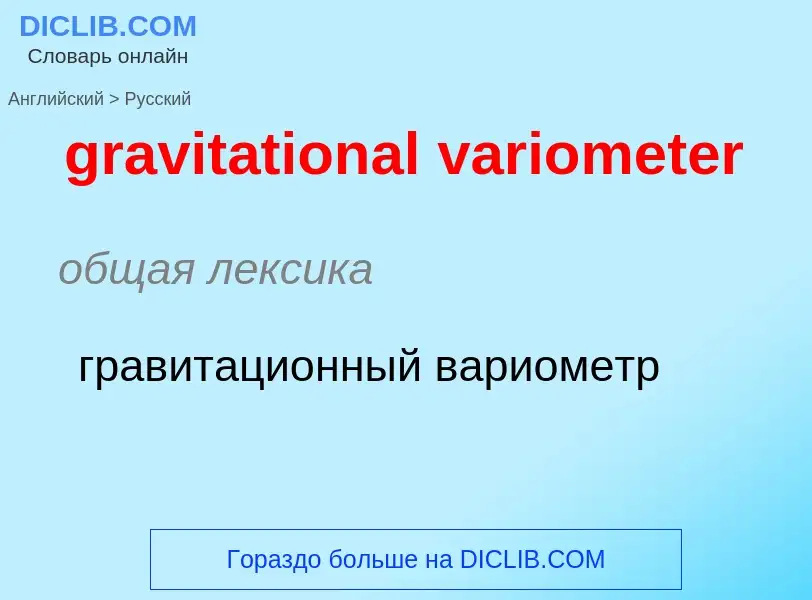Перевод и анализ слов искусственным интеллектом ChatGPT
На этой странице Вы можете получить подробный анализ слова или словосочетания, произведенный с помощью лучшей на сегодняшний день технологии искусственного интеллекта:
- как употребляется слово
- частота употребления
- используется оно чаще в устной или письменной речи
- варианты перевода слова
- примеры употребления (несколько фраз с переводом)
- этимология
gravitational variometer - перевод на русский
общая лексика
гравитационный вариометр
общая лексика
волны тяготения
Определение
Википедия

Gravitational-wave astronomy is an emerging branch of observational astronomy which aims to use gravitational waves (minute distortions of spacetime predicted by Albert Einstein's theory of general relativity) to collect observational data about objects such as neutron stars and black holes, events such as supernovae, and processes including those of the early universe shortly after the Big Bang.
Gravitational waves have a solid theoretical basis, founded upon the theory of relativity. They were first predicted by Einstein in 1916; although a specific consequence of general relativity, they are a common feature of all theories of gravity that obey special relativity. However, after 1916 there was a long debate whether the waves were actually physical, or artefacts of coordinate freedom in general relativity; this was not fully resolved until the 1950s. Indirect observational evidence for their existence first came in the late 1980s, from the monitoring of the Hulse–Taylor binary pulsar (discovered 1974); the pulsar orbit was found to evolve exactly as would be expected for gravitational wave emission. Hulse and Taylor were awarded the 1993 Nobel Prize in Physics for this discovery.
On 11 February 2016 it was announced that the LIGO collaboration had directly observed gravitational waves for the first time in September 2015. The second observation of gravitational waves was made on 26 December 2015 and announced on 15 June 2016. Barry Barish, Kip Thorne and Rainer Weiss were awarded the 2017 Nobel Prize in Physics for leading this work.








